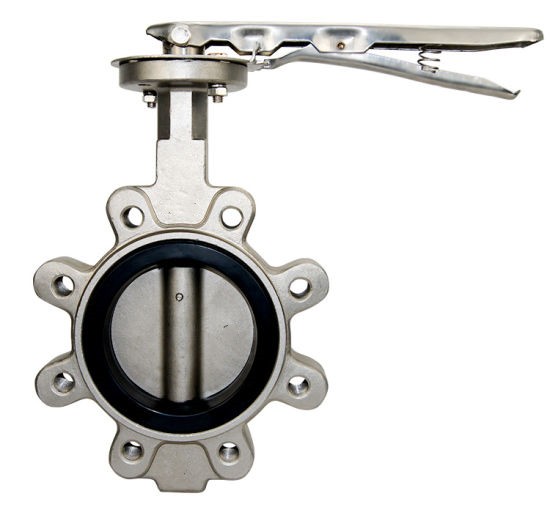aluminum flange manufacturers
Understanding Aluminum Flange Manufacturers
Aluminum flanges play a pivotal role in various industries, serving as essential components that facilitate the joining of pipes, valves, and other equipment. Their lightweight nature, high corrosion resistance, and structural integrity make them an ideal choice for numerous applications. To appreciate these components fully, it is crucial to understand the manufacturers that produce them, the processes involved, and the various types available in the market.
The Importance of Aluminum Flanges
Aluminum flanges are preferred in many scenarios due to their unique properties. Aluminum is inherently resistant to corrosion, which mitigates the risk of material degradation in harsh environments. This feature is particularly beneficial in industries such as marine, aerospace, and chemical processing, where exposure to moisture and chemicals is commonplace. Additionally, the lightweight nature of aluminum flanges reduces the overall weight of the piping system, contributing to cost savings on transportation and installation.
Moreover, aluminum flanges are readily available in various specifications and standards, such as ANSI, ASME, and DIN, making them versatile for different applications. With these attributes in mind, the demand for aluminum flange manufacturers remains strong, as industries seek reliable partners for their supply needs.
The Manufacturing Process
Aluminum flange manufacturers typically employ several processes to create high-quality flanges that meet industry standards. The production begins with the selection of high-grade aluminum alloys, known for their mechanical properties and resistance to corrosion. The chosen alloy is then shaped into billets, which are subjected to various manufacturing techniques.
1. Extrusion This process involves pushing heated aluminum through a die to create specific shapes, including flanges. The extrusion method allows for the creation of long lengths of material with uniform cross-sections, which can be cut to the desired flange dimensions.
2. Forging In forging, aluminum is heated and shaped using compressive forces. This technique results in stronger flanges due to the alignment of the metal's internal grain structure. Forged flanges are often preferred in high-stress applications due to their enhanced durability.
3. Machining After extrusion or forging, flanges may undergo machining. This involves removing excess material to achieve precise dimensions and smooth finishes. CNC (Computer Numerical Control) machining is commonly used, allowing for repeatable precision in the manufacturing process.
aluminum flange manufacturers

4. Finishing The final step involves surface treatment, which enhances the flanges' appearance and corrosion resistance. Common finishing techniques include anodizing, painting, or the application of special coatings.
Choosing the Right Manufacturer
When selecting an aluminum flange manufacturer, several factors should be considered
1. Certification and Standards Ensure that the manufacturer adheres to relevant industry standards and possesses the necessary certifications, such as ISO 9001. This guarantees that their products meet specific quality requirements.
2. Experience and Reputation Consider the manufacturer's experience in the industry. Established manufacturers often have a proven track record of delivering reliable products and services.
3. Material Quality Inquire about the grades and types of aluminum they use. High-quality raw materials lead to better performance and longevity of the flanges.
4. Customization Options Depending on your project's requirements, the ability to customize designs, sizes, and finishes can be crucial. A flexible manufacturer can cater to specific needs.
5. Customer Support Effective communication and support are essential throughout the sourcing process. A reliable manufacturer should be responsive to inquiries and provide guidance on product selection and installation.
Conclusion
Aluminum flange manufacturers are integral to various industries, offering solutions that enhance operational efficiency and safety. With a solid understanding of the manufacturing process and the factors to consider when choosing a supplier, businesses can make informed decisions that align with their requirements. As industries continue to evolve, the demand for high-quality aluminum flanges will undoubtedly persist, paving the way for ongoing innovation and excellence in manufacturing practices. Whether you are in construction, shipping, or any other sector requiring precise and durable components, aluminum flanges are likely to play a vital role in your operations.
-
The Key to Fluid Control: Exploring the Advantages of Ball Valves in Industrial SystemsNewsJul.09,2025
-
The Versatile World of 1, 2, and 3 Piece Ball ValvesNewsJul.09,2025
-
Stainless Steel Ball Valves: The Ideal Choice for Efficient Flow ControlNewsJul.09,2025
-
Optimizing Fluid Control with Ball Float ValvesNewsJul.09,2025
-
Manual Gate Valves: Essential for Control and EfficiencyNewsJul.09,2025
-
Everything You Need to Know About Butterfly ValvesNewsJul.09,2025
-
The Versatility of Wafer Type Butterfly ValvesNewsJul.08,2025




